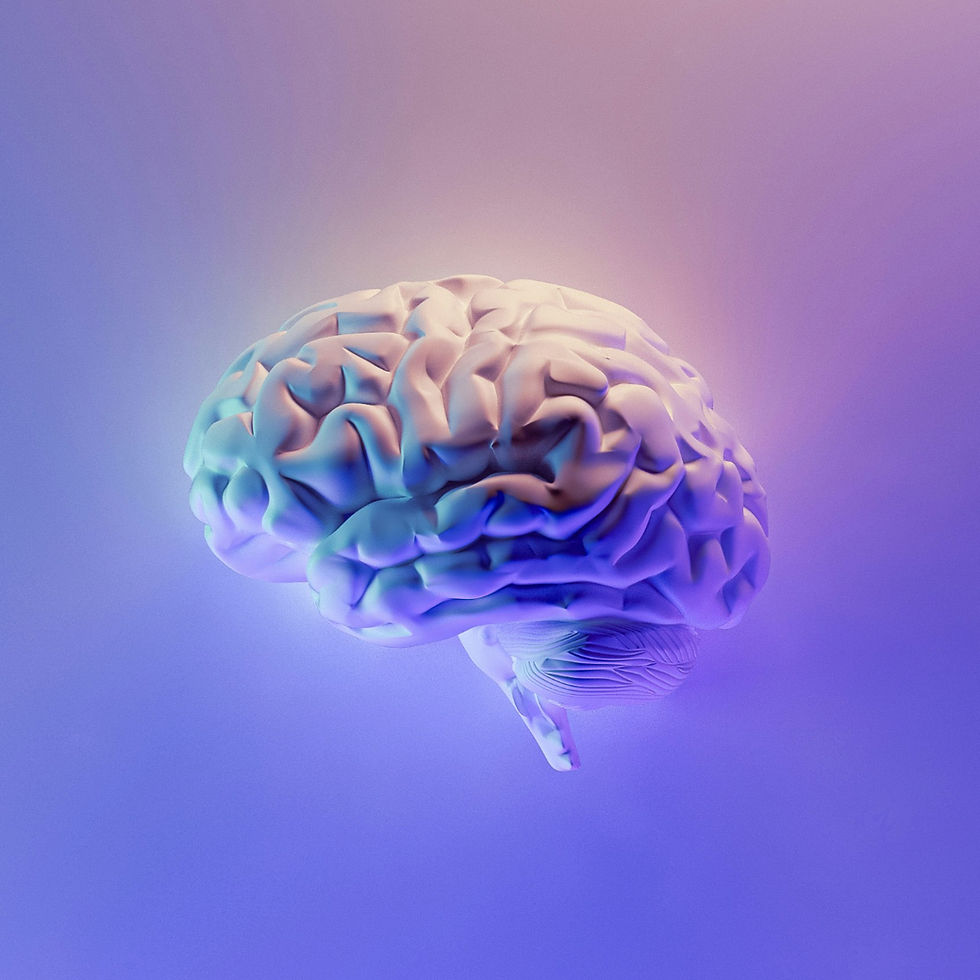Psilocybin for Burnout Recovery: A Neurobiological Reset
- Graham Nelson-Zutter, RPC
- Feb 11, 2025
- 3 min read
Updated: Mar 18, 2025

Burnout, characterized by emotional exhaustion, depersonalization, and reduced personal efficacy, has become a widespread issue, particularly among high-stress professionals. Traditional treatments, including therapy and lifestyle changes, often provide limited relief. However, emerging research on psilocybin-assisted therapy offers a new frontier in recovery, particularly in retreat settings that emphasize deep rest, introspection, and guided psychedelic experiences.
Recent fMRI research on psilocybin’s effects on treatment-resistant depression provides insight into how this psychedelic can facilitate neurological reset and emotional healing. The study, published in Scientific Reports, suggests that psilocybin’s impact on brain connectivity and emotional processing may be particularly beneficial for individuals experiencing burnout. This article explores how two psilocybin tea ceremonies in a retreat setting can aid in burnout recovery by leveraging these findings.
Understanding Psilocybin’s Effects on Burnout Recovery
Burnout shares many neurobiological similarities with depression and chronic stress, particularly in the way the brain processes emotions and stressors. The study found that psilocybin treatment led to:
Reduced Amygdala Activity – The amygdala, which plays a central role in processing stress and fear, showed decreased cerebral blood flow (CBF) post-psilocybin treatment. This reduction correlated with lower depressive symptoms, indicating a calming effect on overactive stress responses—highly relevant for burnout recovery.
Increased Default Mode Network (DMN) Connectivity – The DMN, associated with self-referential thinking and rumination, showed increased functional connectivity post-treatment. This suggests a shift from maladaptive rumination to a more integrated and reflective state, which can help individuals process their burnout experience with greater clarity.
Neuroplasticity and Emotional Processing – Participants who had strong mystical or peak experiences during psilocybin treatment exhibited greater long-term improvements. This aligns with reports that profound psychedelic experiences often lead to enhanced emotional breakthroughs, renewed perspective, and a greater sense of meaning—key factors in burnout recovery.
Why a Retreat Setting Enhances Recovery
A retreat setting offers an ideal environment for psilocybin-assisted burnout recovery by providing:
Controlled & Supportive Environment – Professional facilitation ensures a safe and structured setting where participants can fully surrender to the experience.
Deep Rest & Reflection – Unlike traditional work-life settings, retreats remove daily stressors, allowing the mind and body to heal.
Integration Support – With dedicated time for journaling, guided reflection, and group sharing, participants can cement insights and behavioural shifts initiated by the psilocybin ceremonies.
The Two-Ceremony Model for Burnout Recovery
First Ceremony – Release & Emotional Catharsis
Often initiates emotional processing, allowing participants to confront underlying stressors and suppressed emotions.
Helps to reset the nervous system, reducing hyperactivity in stress-related brain regions like the amygdala.
Facilitates a shift in perspective and self-compassion.
Second Ceremony – Rebuilding & Reconnection
Reinforces insights gained in the first session.
Promotes a sense of renewed clarity, motivation, and connection to purpose.
Supports the development of sustainable self-care strategies moving forward.
A psilocybin-assisted retreat with two ceremonial tea sessions offers a structured and evidence-backed approach to burnout recovery. By resetting maladaptive neural patterns, reducing stress response activation, and enhancing emotional integration, psilocybin allows individuals to not only recover from burnout but emerge with a renewed sense of purpose and well-being. As research continues to validate its efficacy, psychedelic-assisted retreats may soon become a cornerstone of holistic mental health recovery.
(Aestra Retreats offers 5-day psilocybin-assisted retreats in the Netherlands that include 2 truffle tea ceremonies. Our facilitators have guided over 1200 combined psychedelic journeys.)
Sources:
Carhart-Harris, R. L., Roseman, L., Bolstridge, M., Demetriou, L., Pannekoek, J. N., Wall, M. B., Tanner, M., Kaelen, M., McGonigle, J., Murphy, K., Leech, R., Curran, H. V., & Nutt, D. J. (2017). Psilocybin for treatment-resistant depression: fMRI-measured brain mechanisms. Scientific Reports, 7, 13187. https://doi.org/10.1038/s41598-017-13282-7



Comments